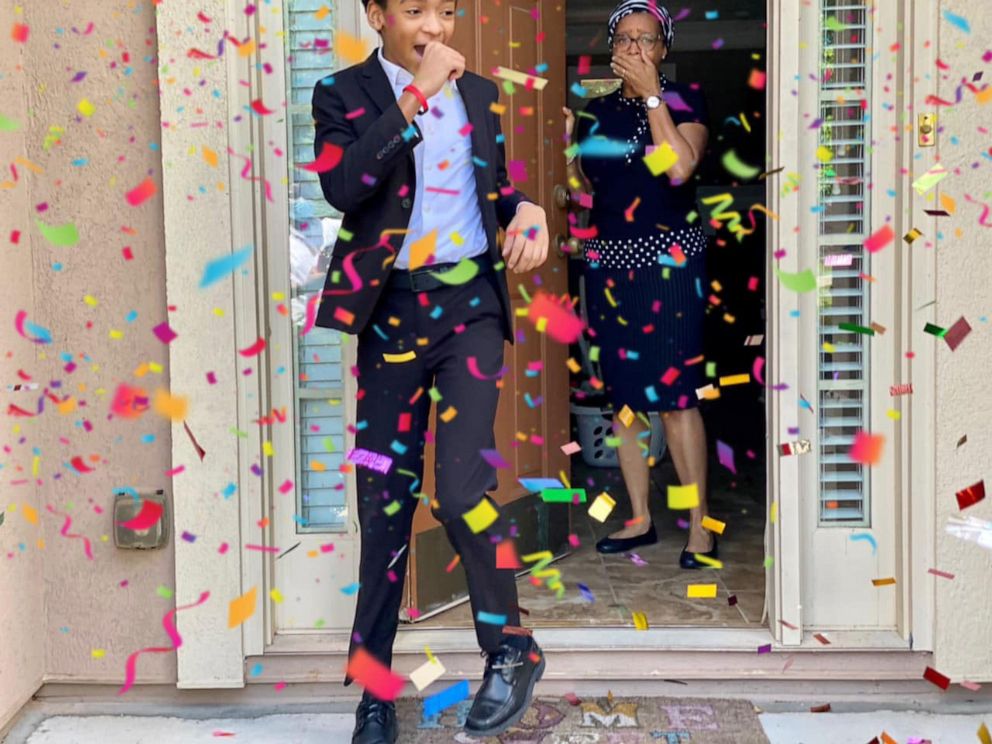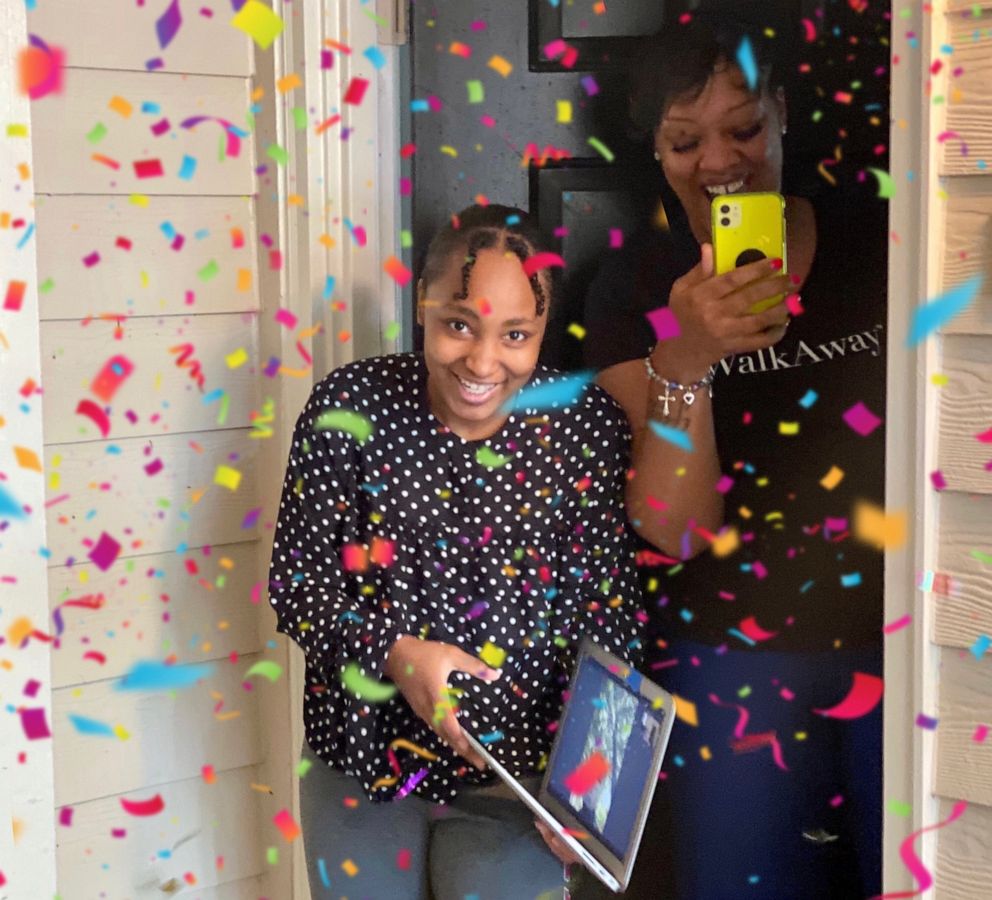25 black students surprised with acceptance into elite Harvard program
Debate coach drives over 200 miles to deliver the shocking news.
Twenty-five students received the surprise of a lifetime on their front doorsteps when they learned they had been accepted into a prestigious program at Harvard University.
The Harvard Debate Council Diversity Project usually has a grand surprise ceremony to reveal all of the students accepted into the program each year. While they can't celebrate together this year due to COVID-19, program founder and assistant debate coach Brandon Fleming didn't let the pandemic ruin the tradition.
Fleming packed his bags, hopped in his car and drove more than 200 miles around the Atlanta metropolitan area to the doorstep of each student to notify and congratulate them on their acceptance into the 2021 class of the highly selective program. He said the three-day, 21-hour road trip was worth it after seeing the excitement on each of their faces.
"They weren't happy because they won a million dollars -- that excitement came from an educational opportunity," Fleming told "Good Morning America." "Seeing their faces light up reminded me of what I was called to do."
Just prior, the students signed on to what they thought was another stage of the Zoom interview process. Little did they know there was a surprise waiting outside. On the video call, Fleming told them to come to the front door since he happened to be in their neighborhoods. Once they opened their doors, he notified them of their acceptance and the celebration began.
"Excitement immediately rushed through my body once he popped the confetti," Jonah Ruffin, 14, said.
Jonah has always been at the top of his class and knew this program could give him an extra opportunity to expand his knowledge. After several rounds of interviews and weeks of anticipation, he couldn't contain his happiness when Fleming showed up at his doorstep with the surprising news.
"I'm really blessed with this once-in-a-lifetime experience," he said. "The whole surprise was really unexpected and it couldn't have gone any better."

One by one, Fleming gave each student the celebration they deserved and welcomed them into the organization.
"I wanted their experiences to be magical moments they never forget," he said.
The Harvard Diversity Project, based in Atlanta, aims to recruit, train and matriculate highly motivated high school students of color into a summer debate residency at the school. Fleming, once an at-risk teen who overcame violence and drugs, said debate saved his life by transforming his ability to think. He began the organization in 2017, and many from the region soon took interest. With thousands of applicants each year, the program has about a 1% acceptance rate.
"Through debate, our students are able to find themselves because they're able to find their voice," Fleming said. "Most of them have now gone off to Ivy Leagues or elite universities on full scholarships."
Starting in August, these 25 scholars will spend 36 weeks preparing for next year's annual international debate tournament at Harvard. In July 2021, they will face off against 400 elite debaters from more than 25 countries. Fleming's team has won every year since the inception of the program.
The organization hopes to create a bridge to success for African American students in the Atlanta region and give them the tools to strive in the academic world.

Emani Stanton, 16, who was on the waitlist for a short period of time, didn't lose hope and was determined to get in. Being accepted into this program now means that she can help shift the narrative pertaining to young black men and women.
"I despise the idea that African Americans cannot be scholarly without separating their culture from their education," she told "GMA." "Now I have the opportunity to change the perspective."
These newly accepted students are now ready to start their preparation for next year's debate. After taking the multi-day road trip to congratulate each of them personally, Fleming is eager to train this diverse group of future leaders.
"They're ecstatic about their education and that's what we, as educators, should all hope to see in every child," he said.




